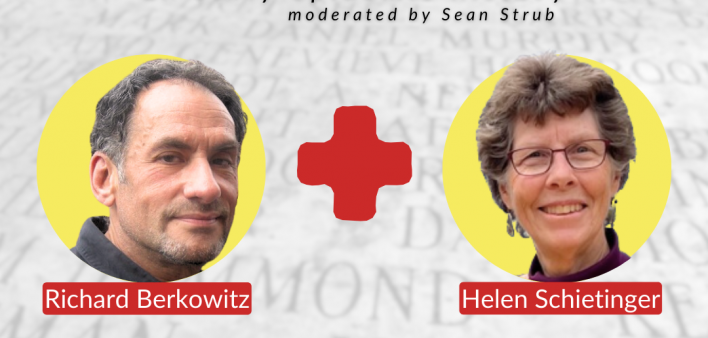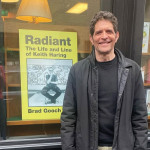On Thursday, June 1, I got to speak with Richard Berkowitz and Helen Schietinger about the earliest days of the HIV/AIDS epidemic. They are two amazing activists and amongst the dwindling few who can speak first-hand to what happened in those critical first years. Watch above or click here to watch on Youtube and learn about those early days. “in their own words”.
Richard Berkowitz is an activist and author based in NYC. In 1983, Berkowitz co-authored How to Have Sex in an Epidemic, a 40-page pamphlet which went beyond condom use to demonstrate how many forms of sexual expression could be made safe or safer. It is widely regarded as the invention of safe sex guidelines. His 2003 book, Stayin’ Alive: The Invention of Safe Sex inspired the 2008 documentary, SEX POSITIVE which won the Grand Jury prize for Best Documentary at OUTFEST L.A. He is the last surviving co-author of the “Denver Principles”, an historic 1983 document that redefined the doctor/patient relationship and has been celebrated by the United Nations, the World Health Organization and governments around the world where healthcare is regarded as a basic human right.
In 1981 Helen Schietinger, RN, MA was hired to coordinate San Francisco’s Kaposi’s Sarcoma Clinic — as initial attempts were being made to understand a constellation of diseases killing gay men. In 1983 she accepted a position at the San Francisco Shanti Project to create the first AIDS Residence Program. There she continued working closely with the SF Health Department and Hospice of San Francisco to develop the range of services needed to meet the needs of people living with AIDS. In June of 1983 she co-chaired the Second AIDS Forum in Denver, Colorado, at the annual conference of the National Gay Health Education Foundation. Later she headed the California Nurses Association’s statewide AIDS Train the Trainer Program and joined the WHO Global Programme on AIDS in Geneva to integrate community-based care into National AIDS Programs worldwide.
In 1991 she returned to the US, continuing her work developing policy and evaluating AIDS programming nationally and internationally, through organizations such as the AIDS Action Foundation and the Norwegian Red Cross. She retired in 2001 to become a full-time activist. Much of her work since then has focused on providing support and advocacy for torture survivors through the Torture Abolition and Survivors Support Coalition (TASSC), Witness Against Torture and the Guantanamo Survivors Fund.








Comments
Comments